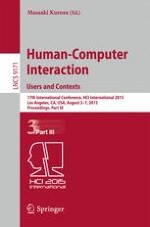2015 | OriginalPaper | Buchkapitel
Post-Implementation ERP Success Assessment: A Conceptual Model
verfasst von : Fan Zhao, Eugene Hoyt
Erschienen in: Human-Computer Interaction: Users and Contexts
Aktivieren Sie unsere intelligente Suche, um passende Fachinhalte oder Patente zu finden.
Wählen Sie Textabschnitte aus um mit Künstlicher Intelligenz passenden Patente zu finden. powered by
Markieren Sie Textabschnitte, um KI-gestützt weitere passende Inhalte zu finden. powered by
